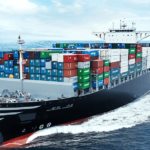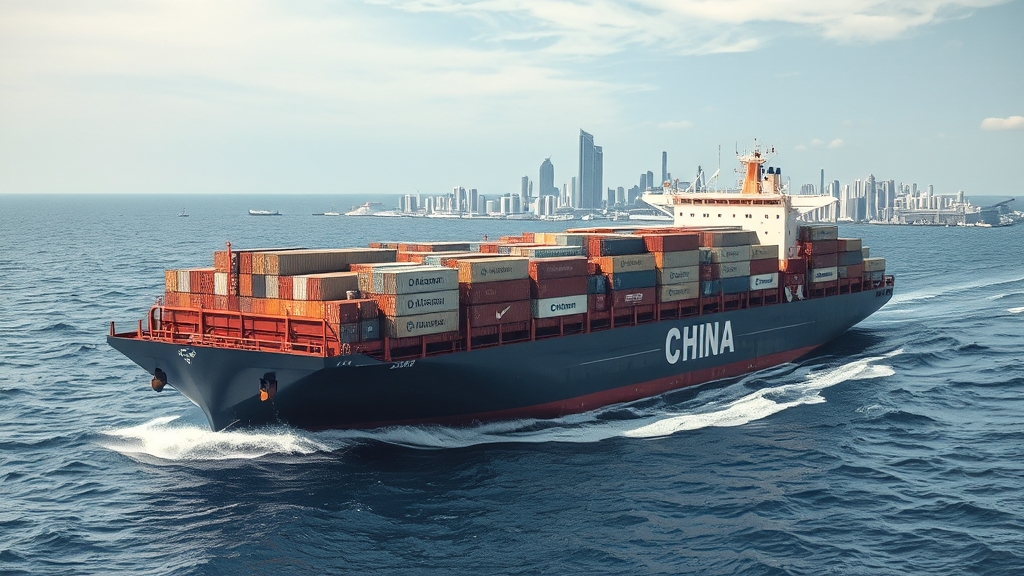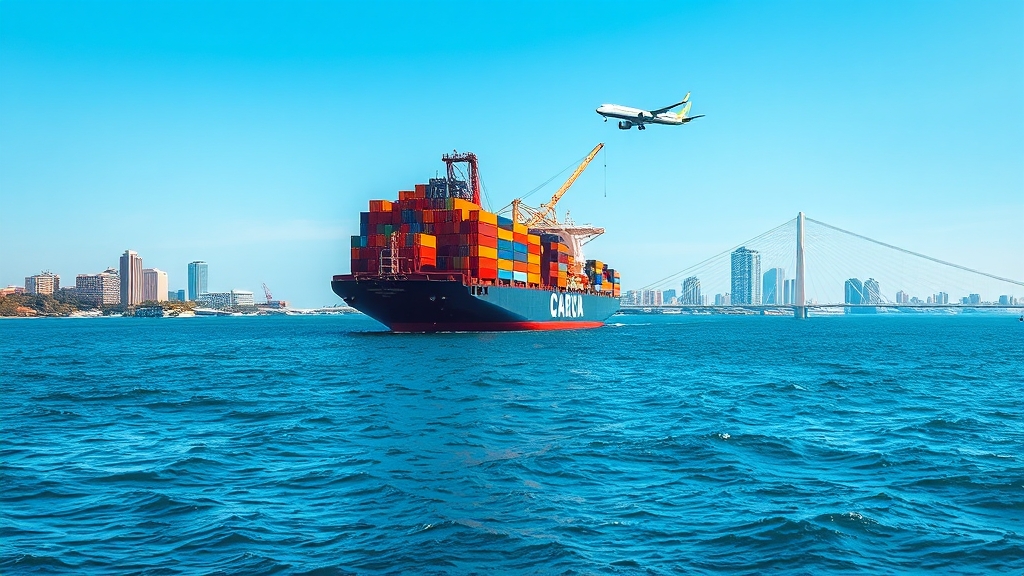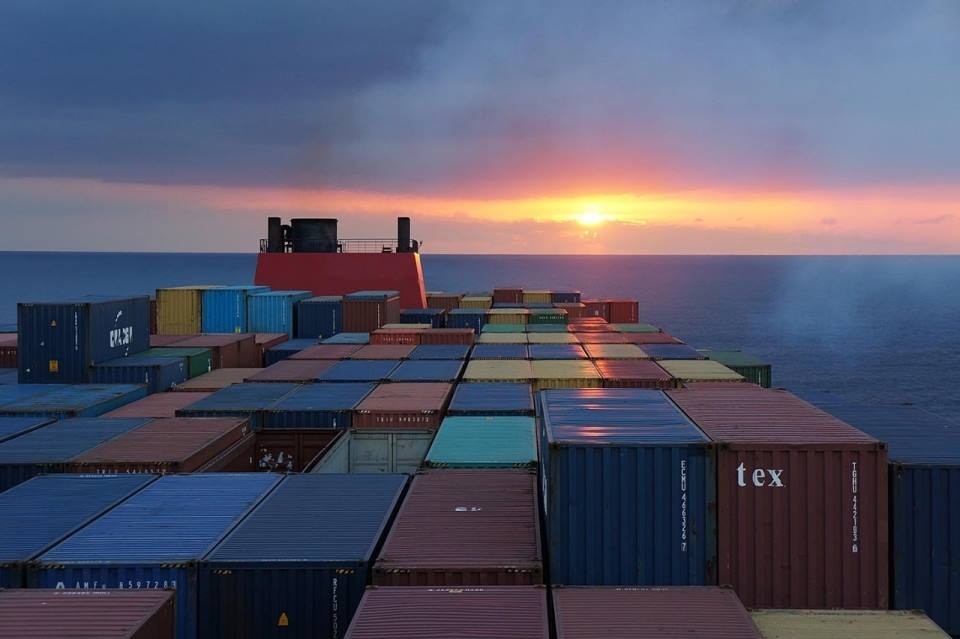Shipping goods from China to Saudi Arabia involves a sophisticated and well-structured process that requires careful planning and execution. As global trade continues to expand, understanding the intricacies of shipping logistics becomes increasingly important for businesses aiming to optimize their supply chains. From selecting the appropriate container type to navigating complex customs regulations, each step in the shipping process demands attention to detail and strategic decision-making. In this guide, we will delve into key aspects such as choosing the optimal shipping route, estimating delivery timeframes, managing regulatory compliance, and the crucial role of partnering with a reliable freight forwarder like Dantful International Logistics.

Understanding the Shipping Process
Shipping containers from China to Saudi Arabia involves a well-coordinated process that ensures goods are delivered timely and safely. Here’s a detailed look at what this process entails:
- Types of Containers: The choice of container can significantly impact the shipping process. Common container types include the 20ft container and the 40ft container. While the 20ft container is ideal for smaller, denser goods, a 40ft container is better suited for lighter, larger items or when shipping in bulk. Specialized containers, such as reefer containers for perishable goods, are also available.
- Required Documentation: Having the right paperwork is crucial in shipping. The shipment must include a Bill of Lading, which serves as a contract and receipt for shipped goods. Additionally, a commercial invoice details the transaction, while the packing list outlines the shipment’s contents. The certificate of origin authenticates that the products originate from China, satisfying Saudi Arabian customs requirements.
Choosing a Shipping Route

Selecting the optimal shipping route is essential for efficient delivery and cost management:
- Direct vs Indirect Shipping: Direct routes typically result in faster delivery times but may come at a higher cost. Indirect routes might offer savings but can increase transit times due to intermediate stops at other ports. Dantful International Logistics can assist in evaluating the best route based on your specific needs.
- Popular Ports of Departure and Arrival: In China, major ports like Shanghai, Shenzhen, and Ningbo are commonly used for international trade. Upon reaching Saudi Arabia, shipments typically arrive at major ports such as Jeddah Islamic Port or King Abdul Aziz Port in Dammam. Choosing the right ports can significantly affect transit time and logistic efficiency.
Cost Factors and Pricing
Shipping costs can vary widely based on several factors. Understanding these will help in budgeting and managing expenses effectively:
- Freight Cost Components: The total shipping cost comprises multiple elements. Besides base freight charges, other costs include port fees, customs duties, and insurance. Freight charges are affected by the distance, fuel costs, and the container type. Port fees are charged for loading/unloading and use of port facilities, while customs duties depend on the product category and its declared value.
- Cost-Saving Tips: To mitigate costs, consider consolidating shipments where feasible. This involves combining smaller shipments into a single container, taking advantage of bulk shipping rates. Flexibility in scheduling can also lead to savings; by avoiding peak times and seasons, you can often secure better rates. Lastly, establishing a long-term relationship with a freight forwarder like Dantful International Logistics can result in negotiated discounts and priority services.
By understanding these critical areas of the shipping process, businesses can make informed decisions that optimize their shipping strategy from China to Saudi Arabia. This ensures not only cost-effectiveness but also reliability in their logistics operations.
Shipping From China to Middle East Countries:
- Shipping from China to Saudi Arabia
- Shipping from China to UAE
- Shipping from china to KUWAIT
- Shipping From China To EGYPT
- Shipping from China to Bahrain
- Shipping From China To Jordan
- Shipping From China To Israel
- Shipping from China to Qatar
- Shipping From China To IRAQ
- Shipping from China to Iran
Timeframe and Delivery Expectations

When shipping a container from China to Saudi Arabia, understanding the expected timeframe for delivery is crucial for effective supply chain planning.
- Estimated Shipping Times: The transit time for sea freight typically ranges from 20 to 35 days, depending on the route and any intermediate port calls. For instance, a direct route from Shanghai to Jeddah Islamic Port might take around 25 days, whereas indirect routes with additional stops could stretch the timeline. Weather conditions, port congestion, and holiday schedules can also impact shipping times.
- Tracking and Monitoring: Modern shipping solutions offer advanced tracking capabilities. Shippers can monitor their cargo in real-time through automated tracking systems, receiving updates at every stage of the journey. This transparency allows businesses to manage expectations and communicate effectively with partners and customers about delivery schedules.
Regulatory and Customs Considerations
Navigating the regulatory landscape is one of the more challenging aspects of international shipping, particularly when dealing with complex customs protocols.
- Saudi Arabia Import Regulations: Saudi customs require exhaustive documentation to approve goods for entry, including the Commercial Invoice, Certificate of Origin, and specific licenses for controlled goods. Saudi Arabia also mandates conformity assessments for certain products to meet local standards. Non-compliance can lead to delays, penalties, or rejections, so ensuring all documentation is in order is imperative.
- Risk Management: Proactively managing risks is crucial to avoid disruptions. Investing in comprehensive insurance coverage protects against potential loss or damage to goods in transit. Additionally, staying informed about changes in trade agreements or regulations can help anticipate and mitigate risks. Partnering with experts like Dantful International Logistics ensures access to valuable guidance on regulatory changes and risk management strategies.
Partnering with a Reliable Freight Forwarder
The complexity of international shipping makes partnering with a professional freight forwarder invaluable.
- Benefits of Using Freight Forwarders: Freight forwarders simplify the shipping process by handling logistics, customs clearance, and documentation. They offer bespoke solutions tailored to specific business needs, potentially reducing shipping times and costs while staying compliant with regulations.
- Key Services Offered: A competent forwarder like Dantful International Logistics provides a holistic suite of services, including but not limited to customs brokerage, supply chain management, and value-added logistics services. These services ensure a seamless shipping experience. Moreover, their global network and local expertise mean they can optimize routes and negotiate competitive rates, assuring clients of both cost-efficiency and service quality.
Choosing the right freight forwarder is critical for transforming complex logistics challenges into smooth operations, enabling businesses to focus on core activities while leaving shipping complexities to experts. With their vast experience and strategic global partnerships, Dantful International Logistics offers an unmatched one-stop solution for all your international shipping needs.

Young Chiu is a seasoned logistics expert with over 15 years of experience in international freight forwarding and supply chain management. As CEO of Dantful International Logistics, Young is dedicated to providing valuable insights and practical advice to businesses navigating the complexities of global shipping.




















 Afrikaans
Afrikaans Shqip
Shqip አማርኛ
አማርኛ العربية
العربية Հայերեն
Հայերեն Azərbaycan dili
Azərbaycan dili Euskara
Euskara Беларуская мова
Беларуская мова বাংলা
বাংলা Bosanski
Bosanski Български
Български Català
Català Cebuano
Cebuano Chichewa
Chichewa 简体中文
简体中文 繁體中文
繁體中文 Corsu
Corsu Hrvatski
Hrvatski Čeština
Čeština Dansk
Dansk Nederlands
Nederlands English
English Esperanto
Esperanto Eesti
Eesti Filipino
Filipino Suomi
Suomi Français
Français Galego
Galego ქართული
ქართული Deutsch
Deutsch Ελληνικά
Ελληνικά Kreyol ayisyen
Kreyol ayisyen Harshen Hausa
Harshen Hausa Ōlelo Hawaiʻi
Ōlelo Hawaiʻi עִבְרִית
עִבְרִית हिन्दी
हिन्दी Hmong
Hmong Magyar
Magyar Íslenska
Íslenska Igbo
Igbo Bahasa Indonesia
Bahasa Indonesia Gaeilge
Gaeilge Italiano
Italiano 日本語
日本語 Basa Jawa
Basa Jawa ಕನ್ನಡ
ಕನ್ನಡ Қазақ тілі
Қазақ тілі ភាសាខ្មែរ
ភាសាខ្មែរ 한국어
한국어 كوردی
كوردی Кыргызча
Кыргызча ພາສາລາວ
ພາສາລາວ Latin
Latin Latviešu valoda
Latviešu valoda Lietuvių kalba
Lietuvių kalba Lëtzebuergesch
Lëtzebuergesch Македонски јазик
Македонски јазик Malagasy
Malagasy Bahasa Melayu
Bahasa Melayu മലയാളം
മലയാളം Maltese
Maltese Te Reo Māori
Te Reo Māori मराठी
मराठी Монгол
Монгол ဗမာစာ
ဗမာစာ नेपाली
नेपाली Norsk bokmål
Norsk bokmål پښتو
پښتو فارسی
فارسی Polski
Polski Português
Português ਪੰਜਾਬੀ
ਪੰਜਾਬੀ Română
Română Русский
Русский Samoan
Samoan Gàidhlig
Gàidhlig Српски језик
Српски језик Sesotho
Sesotho Shona
Shona سنڌي
سنڌي සිංහල
සිංහල Slovenčina
Slovenčina Slovenščina
Slovenščina Afsoomaali
Afsoomaali Español
Español Basa Sunda
Basa Sunda Kiswahili
Kiswahili Svenska
Svenska Тоҷикӣ
Тоҷикӣ தமிழ்
தமிழ் తెలుగు
తెలుగు ไทย
ไทย Türkçe
Türkçe Українська
Українська اردو
اردو O‘zbekcha
O‘zbekcha Tiếng Việt
Tiếng Việt Cymraeg
Cymraeg יידיש
יידיש Yorùbá
Yorùbá Zulu
Zulu